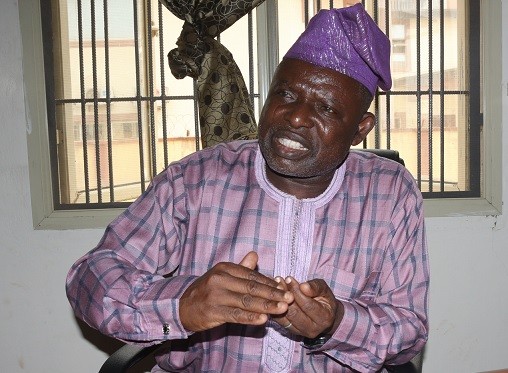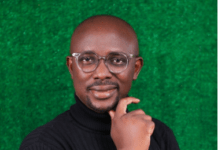
Pharm. (Chief) Hamidu Adediran Oluyedun is a retired director of pharmaceutical services, Adeoyo Maternity Teaching Hospital, and current executive director, Harafat-GTB Pharmacy, Ibadan. He has served as a hospital pharmacist in different capacities, from 1989 when he worked as an intern, to 2021, when he retired amidst funfair, before venturing into community practice three years ago. He has also variously served the Pharmaceutical Society of Nigeria (PSN) and the Association of Hospital and Administrative Pharmacists (AHAPN) at different times. In this exclusive interview with ADEBAYO OLADEJO, the highly cerebral grassroots man, explores critical issues surrounding pharmacy practice in the country, as well as his reasons for venturing into community pharmacy practice, having spent over 30 years in the hospital setting. He also recounts the high and low moments of his life, including the year he lost the prestigious May & Baker Award to Sir Ifeanyi Atueyi, publisher of Pharmanews. Excerpts:
Can we have a glimpse into your background?
I am the only surviving child of my mother in a serious polygamous home, so the odds were against me. I was only lucky to attend the Universal Primary Education (now known as Universal Basic Education, UBE) programme, not the conventional secondary school. It was from the UBE programme that I picked interest in science subjects, and I worked a little to raise money to seek admission into the university.
To cut the long story short, I developed an interest in Pharmacy, and I gained admission to study Pharmacy at the University of Ife, now Obafemi Awolowo University, in 1984. I graduated in 1989, despite all odds; I was given a scholarship by the present Ashipa Olubadan of Ibadan land, Chief Eddy Oyewole, and a few other people before I could graduate.
Tell us about your pharmacy journey. How did you move from a young pharmacist to a director in the hospital setting?
My intention was to practise as a community pharmacist in Lagos but some of the people who assisted me through the university requested that I serve people in their community, which I had to comply with. I had to travel back to Oyo State on 30 December, 1991, to start practising in the hospital setting and that was how it began.
I appreciate God because hospital practice was a fulfilling career for me – although there were ups and downs and we also stepped on toes because hospital pharmacy had suffered injustice in the past in Oyo State. I was a deputy director for almost 15 years because of this same injustice, but we fought greatly until about 12 of us were finally promoted to the position of director. So I retired as a director in the hospital setting.
As a retired director in the hospital setting, and now a community pharmacist, tell us some of the challenges facing pharmacy practice in this part of the world.
The major challenges that give me serious concern are the issues of drug distribution, and lack of recognition for the pharmacy profession. The public perception of pharmacy practice is still very poor. Although things have improved, compared to the past, what is poor is poor.
A good number of the people we serve are not well educated about who a pharmacist is. In fact, there is, for instance, no Yoruba equivalent of what a pharmacist means, unlike other healthcare practitioners. Some people simply call us akowe, which actually means a learned person. Some call us apogun, that is, drug mixer; yet pharmacy is more than these.
Another challenge is low numerical strength, as we are not many compared to the population we are serving. There is also another challenge of the glass ceiling agenda for a particular set of professionals. This means that that some professionals are being frustrated or not allowed to go beyond a certain level in the workplace, even in the aspects of remuneration and promotion.
Imagine, I was on Level 15 for years, and it took serious effort – meetings here and there – before I was promoted to Level 16; whereas other professionals had reached Level 17. Can you imagine that? So, with the problem of glass ceiling, the motivation will be low, and it will be difficult to convince the practitioners that we are one.
What is your take on the issue of internal wrangling among healthcare practitioners in the country?
Wrangling will continue, although it is not needed. It is due to the fact that we don’t understand one another. We have forgotten that we should be patient-focused, not self-centred. Much of our conduct nowadays in the healthcare space is self-centred.
Wrangling is part of what we call “hospital conflict”, which should be handled with proper interaction and regular seminars because the major problem is behavioural. Doctors believe the hospital and the patients belong to them; and with that, conflict or wrangling will continue until we understand one another, understand our differences, accept one another for what we are, cohabit and do things together.
What are your thoughts on the issues of drug abuse and misuse?
The reality is that the government and the society have got it wrong and if care is not taken, we are on a journey of no-return. We are celebrating drug addicts. The television stations and social media give them lots of time, especially through their music; and that is why you hear slangs that are not pleasant to the ears. I am a bit into the sociology and such music, when you hear it before you go and commit a crime it is highly destructive. We need to start from the primary schools, to produce a decent society; and we need to train the teachers, who will in turn train the pupils.
To tackle the challenge of drug abuse, we have a long way to go. Although the PCN, the PSN, NAFDAC and others are trying, we need to do more. We need to go down to the communities as drug experts, preach the message to the people and give them orientation that pharmacists are not just every Tom, Dick and Harry they see on the road; pharmacists are specially trained professionals on the issue of drug and everything related to it.
What is your take on the issue of pharmacist consultant cadre issue?
I have a doctor friend who confided in me that our training at the West African Postgraduate College of Pharmacists (WAPCP) is much more robust than their own. So, we only need to appeal to those who are not happy with it that there is enough space for everyone to practise, and being a consultant as a pharmacist does not prevent anybody from doing his or her work perfectly.
We all have our responsibilities shared and we can do it without interfering with one another. But our major problem is that we are not social enough. All this issue of rivalry is a social problem, as we don’t know how to live and let others live, which is called social interaction. We should close our social distance, personal distance and be intimate. Once this is done, nobody will see each other as a threat any longer.
Tell us about special recognitions, awards, titles and others that you acquired in the course of service.
I have received several awards and recognitions, both professional and non-professional. These include the Distinguished Service Award (DSA) by the National Association of Hospital and Administrative Pharmacists of Nigeria (NAHAP), now AHAPN in 2008. I was given “Grand Commander of the Youth”, but later on, the Muslim community in Ibadan here hijacked it and turned it to “Asiwaju Odo” of Muslims. It was highly celebrated and it popularised me a bit.
At the 2008 PSN conference in Abuja, I was a runner-up to the eventual winner of the prestigious May & Baker Professional Service Award, Pharm. (Sir) Ifeanyi Atueyi, publisher, Pharmanews; and I was happy I lost honourably. To the person the cap fits, I doff my hat. God has prepared me for so many things. I am a community pharmacist today; I had worked in the hospital for years, and I am a teacher. But Sir Ifeanyi Atueyi is a pharmacist to the core.
When the announcement was made that he won, somebody said I almost won it but I said, “No, Baba Atueyi deserves it more than me, even if it means winning it every year.” As a mentor and leader, I was happy I lost to the right person. Pharmanews has exposed our greatness in the pharmacy profession and has covered our deficiency in the sense that whereever we are lagging behind, it covers our inadequacy and exposes our activities to the world.
Tell us about your Pharmacy, Harafat-GTB
Harafat-GTB Pharmacy, which was derived from the names of my mother, Harafat and my wife, Ganiyat Toyin Badmus, was established three years ago, precisely 17 January, 2019, as my retirement package and a gift from people I had mentored who are scattered across the country. They did it so that I can still be in active service even after my retirement from the hospital where I practised from 1989 to February 2021, the great day I bowed out of service and was highly celebrated.
What is your advice to young pharmacists who are just coming out of the university?
They should allow themselves to be handled by God and they should not give themselves to demonic opinion. Money will come but it will come at the right time; but the love of humanity should come first.
They should know what they want in the profession, avoid fraudulent means of getting rich quick, avoid the register-and-go temptation, and look for money genuinely. Love of God and humanity should be put first.










